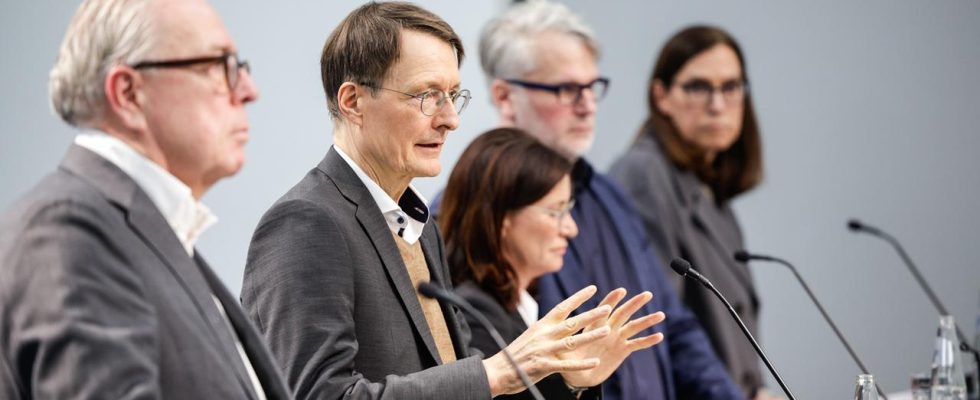Things are crunching in Germany’s general practitioners’ practices: doctors are overloaded and patients have to put up with long waiting times. At a crisis meeting with family doctors, Health Minister Lauterbach promised reforms that should relieve them.
According to plans by Federal Health Minister Karl Lauterbach (SPD), family doctors should be given more financial freedom in order to avoid waiting times and bottlenecks. Lauterbach said after a top meeting with medical representatives in Berlin that he would present a draft law in January to abolish the current fee caps.
Lauterbach hopes for fewer patients in waiting rooms
Specifically, budgets with upper limits on remuneration from health insurance companies should be eliminated for general practitioners. This should mean that all services provided in the practices are paid for. In addition, the bureaucratic effort should be reduced. Fee caps can mean that doctors have exhausted their treatment budget before the end of the month and are therefore no longer paid for additional patients.
“We also want to de-economize general practitioner practices,” said Lauterbach. The focus should no longer be on how often a patient has to be called in so that practices can pay the full fee. There will be fewer patients in the waiting room, so that practices can concentrate on those who need medical care, explained Lauterbach.
Annual and “holding allowance” planned
Simplifications should be made for adult insured persons with chronic illnesses who continually require medication. By changing the remuneration practice for general practitioners, Lauterbach wants to ensure that chronically ill patients are no longer called in quarterly just so that doctors can get a flat rate for them.
Instead of the quarterly flat rate, there should be an annual flat rate that will be billed upon first contact. This should significantly reduce the number of avoidable visits to the practice and allow more treatment time. This makes it possible to deal with more inquiries such as prescriptions or sick notes by telephone instead of by visiting already overcrowded practices, said the minister.
If practices meet certain criteria such as home visits or a minimum number of insured people undergoing treatment, they should be able to receive a legally regulated “retention fee”. This is intended to provide support to practices that make a particular contribution to care. General practitioner practices should also be able to bill the health insurance company once a year for qualified heat advice for risk groups.
Lauterbach does not expect higher contributions
In an interview with the daily topics Lauterbach said that the reform should be financed by the currently increasing income of the health insurance companies with almost constant contribution rates. “This will work broadly with contribution rate stability.”
According to him, the reform will result in costs in the three-digit million range. Exactly how high these will be is currently being calculated. The Health Minister estimated that it would definitely not be in the order of one billion euros.
Virchowbund criticizes announcements
Unlike general practitioners, the reform plans will not result in any so-called de-budgeting of fees for specialists. Lauterbach wants to relieve the burden on specialists by almost completely foregoing so-called drug recourse. According to this, doctors are currently liable with their own income if they prescribe too many or too expensive medications. According to Lauterbach, the reform will result in 80 percent of the previous recourse cases being eliminated.
The doctors’ representation Virchowbund criticized the health minister’s promises as “incomplete and far too vague”. “We are completely dissatisfied with the outcome of today’s discussions,” said chairman Dirk Heinrich. The anger at the base is increasing. “It is therefore clear to us that the protests must continue if the entire outpatient care provided by general practitioners and specialists is not taken into account.” This means that patients could not be spared from further specialist practice closures.
General practitioners went on strike after Christmas
Doctors in private practice have been complaining about a heavy workload for a long time. In protest against health policy, thousands of practices were not open in the days after Christmas. The doctors had already called for a crisis meeting with Lauterbach in the run-up to the strike.
According to the General Practitioners Association, there is currently a lack of 5,000 practices. After the meeting in Berlin, Lauterbach admitted that there had to be enough doctors – that would require more medical students. He announced a proposal to increase their numbers by 5,000 per year. The head of the General Practitioners Association, Beier, praised Lauterbach’s plans as “right and important”. The President of the German Medical Association, Klaus Reinhardt, also welcomed the project in principle.

